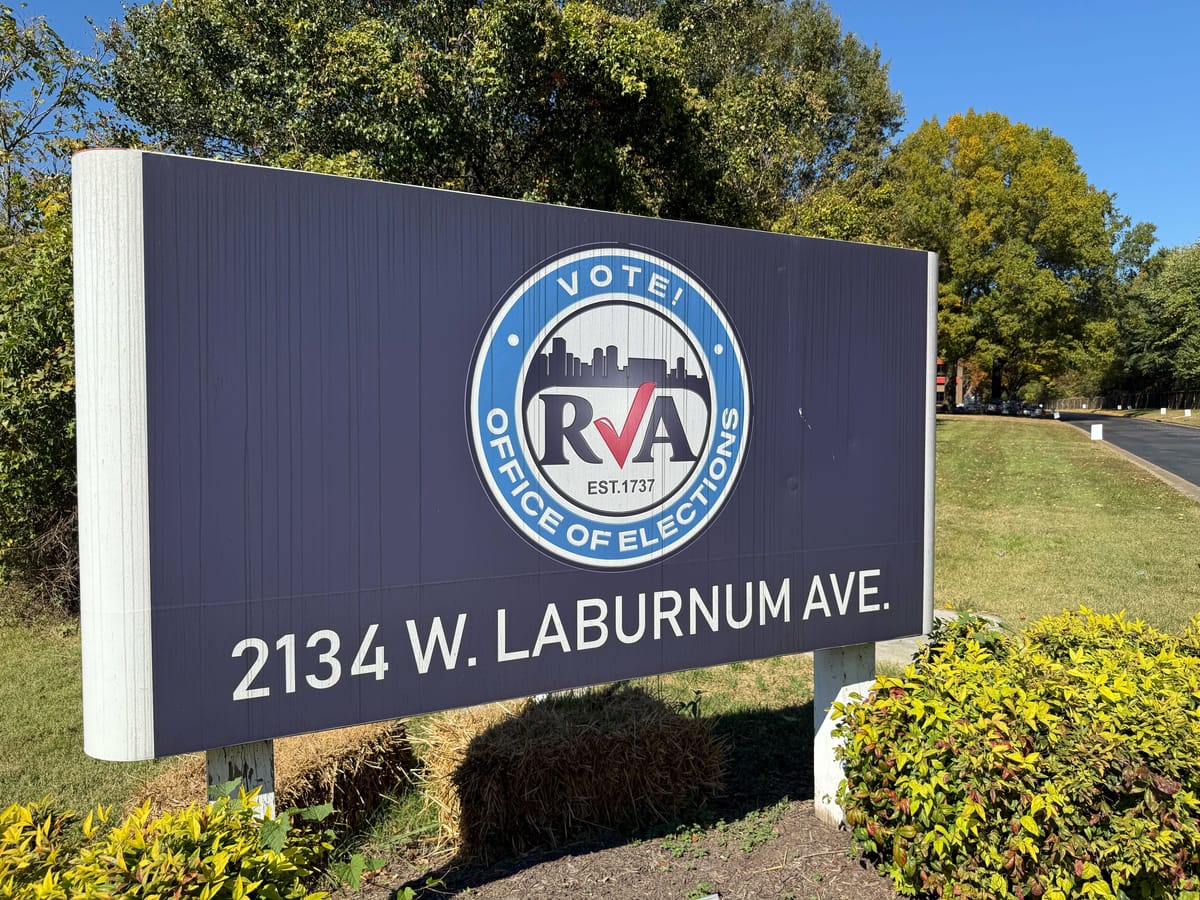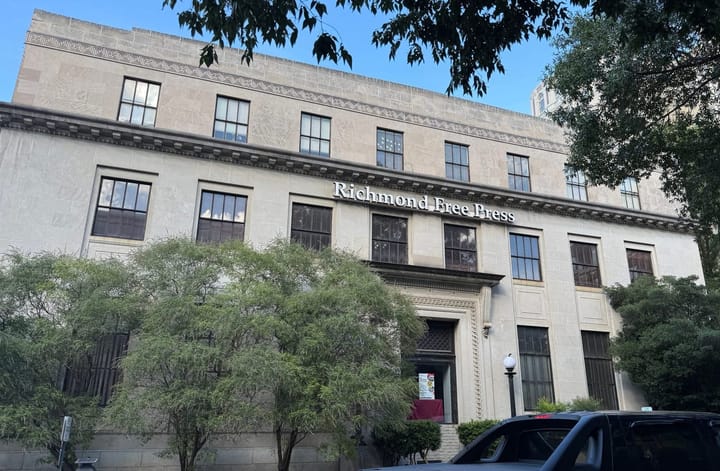
Richmond election officials appear not to have enforced finance disclosure mandates
Nearly half of the 16 candidates for Richmond School Board last year missed at least one deadline for campaign finance disclosures, according to a review of reports filed with the state Department of Elections.
But it does not appear that the city's Office of Elections took any corrective action.
The office issued no citations for late reports, which under state law calls for candidates to be assessed a civil penalty of $100.
Shaking up the city’s lackadaisical approach to campaign finance is yet another issue for the city’s three-member Electoral Board to address following the tumultuous three-year tenure of city voting registrar Keith Balmer, who resigned in December.
Board chair Starlet Stevens declined to discuss documentation gathered by The Richmonder showing various examples of lax oversight.
In an email, Stevens said the board will “address this issue” with new registrar David Levine, who starts July 1.
In addition to maintaining voter lists and administering elections, local voter registrars are responsible for ensuring that candidates file periodic reports that disclose the source of campaign funds and how they spend it.
The system can be confusing for candidates, particularly those running for the first time. Candidates for local office are required to file periodic finance disclosures using an online portal provided by the state Department of Elections. But the administrative oversight of campaign finance laws resides in the county or city where a candidate runs.
In some localities, local election officers are sticklers for the rules. They maintain an inventory of reports received, check to see if candidates provide required information about donors (including address, occupation and employer) and double-check the math on the summary pages. After the election, some local election officials contact losing candidates to make sure they understand the requirement to provide a final accounting of their finances.
There is no indication there was any such oversight in Richmond during the municipal elections last fall. Of the 16 candidates for School Board, The Richmonder found seven missed at least one filing deadline.
But none of the seven candidates later disclosed that their campaign account was charged with a $100 civil penalty, according to campaign finance reports available on vpap.org.
Unclosed accounts linger in system
Richmond election officials also do not appear to be making sure that after an election that candidates reconcile their finances and file what is known as a “final report.”
A random drawing by the state Department of Elections late last year turned up three former Richmond candidates from 2016 and 2020 who simply had stopped filing reports.
A further investigation by The Richmonder found a total of 18 city council and school board candidates from the 2016 and 2020 general elections who never filed a required final accounting of their finances.
Several candidates said they can’t recall ever receiving an email reminder, phone call or letter from the city’s Office of Elections.
Amy Wentz, who ran for City Council in November 2020, last filed a finance report in January 2021 that showed an ending balance of $3,757.
“If I need to close something I’ll be glad to do it,” Wentz said. “I just need to know what to do.”
Jer'Mykeal McCoy also ran for council in 2020, but last filed a campaign finance report that October, one week before Election Day, showing an ending balance of $14,611.
In a phone interview, McCoy said he that he later paid all his bills and closed out his bank account, but never got around to following up with a final accounting of his finances. “I took care of lingering expenses. It’s not like there is some mystery slush fund out there,” he said.
He said he appreciated the reminder about the need to file paperwork closing out his campaign finance account, which is still shown as active in the state’s online system.
“We just didn’t get to the point of finishing,” he said. “As you can imagine, we were still in a global pandemic, so things got missed.”
Other localities face similar issues
Richmond may not be alone when it comes to shirking its duties to oversee campaign finance laws. Candidate campaign reports from 2024-25 show that only four of nine Virginia localities with a population of 100,000 or more that held municipal elections last November reported paying late fee penalties.
At the same time, election officials in smaller cities like Lexington (population 7,802) and Hopewell (22,970) managed to issue late penalties.
The Department of Elections declined to make someone available to talk about the lack of consistency in local enforcement of campaign finance laws.
In written responses to questions, an agency spokesperson said local candidates can expect the state’s online filing system to generate an email reminder before each deadline. But the spokesperson said a local candidate cannot expect any further communication from the state about late reports or other campaign finance-related issues.
“A local candidate is the responsibility of the local general registrar,” the spokesperson wrote.
When it comes to local campaign finance oversight, Richmond residents learned last year about the city’s authority. Various media outlets found that council candidate Tavares Floyd listed major contributors who later said they had never donated to his campaign. Some said they had never heard of him.
But the city’s registrar said he lacked investigative powers.
Last year, the Department of Elections gained the authority to conduct a post-election audit to verify the accuracy candidates’ finance disclosures. But the law limits the review to a random sample of 1 percent of local candidates. Officials drew seven names, but Tavares Floyd was not among them.
The Richmonder is powered by your donations. For just $9.99 a month, you can join the 1,000+ donors who are keeping quality local journalism alive in Richmond.






